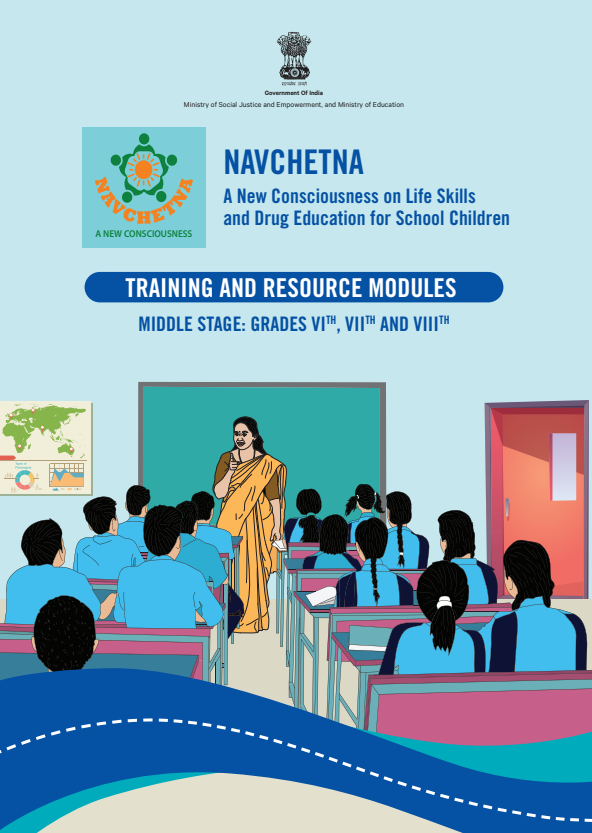NAVCHETNA - A New Consciousness on Life Skills and Drug Education for School Children MIDDLE STAGE: GRADES VITH, VIITH AND VIIITH
This section of the training module ‘Navchetna’, provides important
background material for teachers to better understand the value of specific
life skills and education about drugs, before it is delivered to school children.
The World Health Organization(WHO) defines life skills as ‘the abilities for adaptive
(flexible) and positive behavior, that enable individuals to deal effectively with
the demands and challenges of everyday life’.2
Globally, there is a growing demand
to educate children (child under 18 years) and adolescents (aged between 10 — 19
years) with life skills to help them deal with their day-to day life challenges and
transition into adulthood with informed healthy choices. These healthy choices
can range from issues of nutrition, hygiene, various social issues and pressures, as
well as effective decision-making regarding tobacco, alcohol and any other drug
use. The adolescent years are formative and impressionable and it is a period when
substantial physical, psychological and behavioral changes take place. This module
addresses some areas for the promotion of health and well-being of adolescents
and school children.
This training module also highlights some factors crucial for creating awareness
and prevention about drugs—emphasis is given on meaningful approaches to
enhance the educational process of evidence-based principles of a school drug
education programme. This training module aims to develop teachers, awareness
of the possible harmful effects of various drugs, to enable students to acquire skills
needed to help students to make informed decisions and to better manage drug related situations.

- Teacher: Prerna Chowdhary
